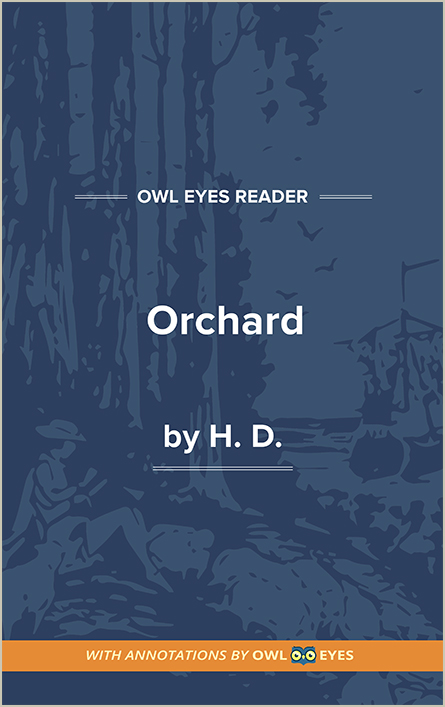Analysis Pages
Themes in Orchard
Denial of Temptation is More Dangerous Than Temptation Itself: The speaker continually denies her desire to indulge in the sinful temptation of the orchard. However, she describes her desire in lush and evocative terms that allude to emotional indulgence, posing the question of whether denial is just as bad as the temptation, if not worse.
Feeling Guilt for Enjoying Natural Beauty: The poem follows the speaker’s struggle with her guilt for enjoying the natural beauty around her. With words like “prostrate” and “flayed,” religious undertones serve to highlight the sinful nature of the enjoyment. The speaker struggles with this internal guilt and the want she has to indulge her desires.
Themes Examples in Orchard:
Orchard
🔒"song..." See in text (Orchard)
"I bring you as offering. ..." See in text (Orchard)
"alone..." See in text (Orchard)
"broken..." See in text (Orchard)
"alone unbeautiful, son of the god,..." See in text (Orchard)
"honey-seeking, golden-banded,..." See in text (Orchard)
"as it fell—..." See in text (Orchard)

